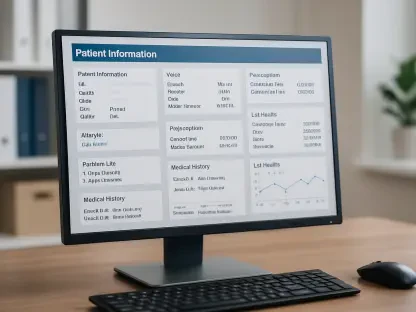The Michael J. Fox Foundation’s Parkinson’s Progression Markers Initiative is transforming Parkinson’s diagnosis and research by offering free risk screenings to individuals aged 40 and older. With the incorporation of innovative biomarker tests and the expansion of its volunteer pool through the myPPMI online platform, the initiative is poised to make major strides. This comprehensive approach aims to identify clinical and biological markers associated with Parkinson’s, potentially changing the landscape of early diagnosis and management.
Expanded Screening Efforts
Broadening Demographic Reach
The Parkinson’s Progression Markers Initiative (PPMI) is making a significant impact by expanding its screening eligibility to include a wider age range, starting from 40 years old and above, a shift from the previous age requirement of 60 and older. This initiative focuses on early detection through blood tests and assessments of smell loss, a known precursor to Parkinson’s disease. The drive to enroll individuals diagnosed with the disease in recent years further highlights a commitment to optimizing data collection for research purposes. By employing an online platform, myPPMI, the project facilitates broader participation across the United States, enabling residents aged 18 and older to contribute valuable data to long-term studies aimed at discerning clinical and biological markers of the disease.
Breakthroughs in Biomarker Testing
A pivotal component of the PPMI initiative is the recent development of a biomarker test targeting alpha-synuclein, a protein that aggregates into toxic clumps within the nervous system. This innovation marks a groundbreaking achievement, allowing the detection of these aggregates in living patients for the first time. In substantial studies, the test demonstrated an impressive accuracy rate by identifying potentially over 88% of subjects exhibiting Parkinson’s symptoms, underscoring its promise as a tool for early diagnosis. Notably, findings indicated some undiagnosed participants over 60 harbored alpha-synuclein clumps, suggesting they might be at risk of developing the condition. The correlation between severe smell loss and accurate test results further underscores the importance of early screening measures.
Advancements in Parkinson’s Research
The Role of Data in Predictive Analysis
The PPMI has successfully gathered extensive data on participant health and well-being, leveraging contributions from over 46,000 online participants with the aim of identifying additional markers predictive of Parkinson’s progression. The availability of this online platform facilitates increased volunteer engagement, broadening the pool of participants. Crucially, the initiative offers participants access to their health data, including a-syn SAA test results, brain scans, and movement evaluations, empowering them with insights that inform healthcare decisions and potential involvement in further research opportunities. This transparent exchange of information not only supports individual examination and awareness but also bolsters collective efforts towards refining predictive models for the disease.
Collaborative Endeavors and Accessibility
Acknowledging the value of collective efforts within the scientific community, the initiative maintains an open-access dataset, granting researchers not directly affiliated with PPMI the opportunity to utilize its findings. By encouraging collaboration, this strategy is pivotal in enhancing the understanding of Parkinson’s disease, thereby driving efforts to curb its progress. The cohesive work of the study team, participating sites, scientists, and volunteers underscores the initiative’s achievements, illustrating the importance of mutual contribution in advancing research. The shared commitment between varied parties fosters comprehensive scientific dialogue, ultimately aspiring for breakthroughs that alter the course of Parkinson’s understanding and intervention.
Future Considerations for Parkinson’s Risk Prediction
Ongoing Innovations and Discoveries
The expansion of PPMI, exemplified by the addition of extended a-syn SAA testing methods and sensory evaluations, continues to catalyze scientific innovation. Indicators of success precede new questions, according to MJFF’s chief program officer, signaling an ongoing evolution in leveraging previous successes to inspire future advancements. The project’s future trajectory is characterized by exploration and potential breakthroughs that could redefine detection criteria and management strategies. By continuously examining emerging findings, the PPMI brings to light opportunities for intervention at earlier stages of the disease, perhaps even enabling preventive measures for those identified at greatest risk.
Implications for Patient Care and Involvement
The Michael J. Fox Foundation’s Parkinson’s Progression Markers Initiative is revolutionizing the way Parkinson’s is diagnosed and researched by providing free risk assessments for people aged 40 and above. This forward-thinking program utilizes cutting-edge biomarker tests to improve understanding and detection of Parkinson’s. By expanding its volunteer network via the myPPMI online platform, the initiative is set to advance significantly. This holistic strategy targets the identification of clinical and biological markers linked to Parkinson’s, which could reshape early diagnosis and treatment. Understanding these markers not only empowers healthcare professionals in more accurately predicting the disease’s progression but also facilitates the development of more effective management strategies. The efforts of the Foundation highlight the critical importance of innovation and participant engagement in transforming the future of Parkinson’s research, paving the way for breakthroughs that could impact countless lives.









